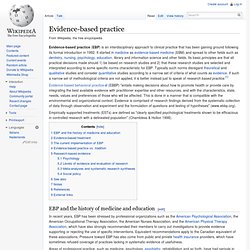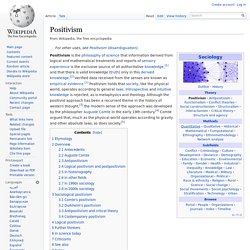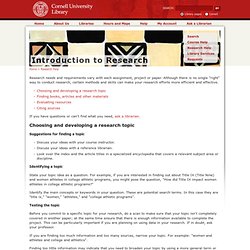

Evidence-based practice. Evidence-based practice (EBP) is an interdisciplinary approach to clinical practice that has been gaining ground following its formal introduction in 1992.

It started in medicine as evidence-based medicine (EBM) and spread to other fields such as dentistry, nursing, psychology, education, library and information science and other fields. Its basic principles are that all practical decisions made should 1) be based on research studies and 2) that these research studies are selected and interpreted according to some specific norms characteristic for EBP. Typically such norms disregard theoretical and qualitative studies and consider quantitative studies according to a narrow set of criteria of what counts as evidence. If such a narrow set of methodological criteria are not applied, it is better instead just to speak of research based practice.[1] EBP and the history of medicine and education[edit]
Positivism. Positivism is the philosophy of science that information derived from logical and mathematical treatments and reports of sensory experience is the exclusive source of all authoritative knowledge,[1] and that there is valid knowledge (truth) only in this derived knowledge.[2] Verified data received from the senses are known as empirical evidence.[1] Positivism holds that society, like the physical world, operates according to general laws.

Introspective and intuitive knowledge is rejected, as is metaphysics and theology. Although the positivist approach has been a recurrent theme in the history of western thought,[3] the modern sense of the approach was developed by the philosopher Auguste Comte in the early 19th century.[4] Comte argued that, much as the physical world operates according to gravity and other absolute laws, so does society.[5] Cornell University Library. Research needs and requirements vary with each assignment, project or paper.

Although there is no single "right" way to conduct research, certain methods and skills can make your research efforts more efficient and effective. If you have questions or can't find what you need, ask a librarian. Choosing and developing a research topic Suggestions for finding a topic Discuss your ideas with your course instructor. Sayings about Research.